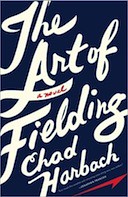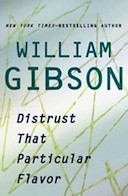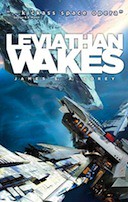“I dreamt about Jews every night for years and years. Fortunately I have never met one….”
— Umberto Eco, The Prague Cemetery
 |
Red Plenty by Francis Spufford Not exactly a historical novel, more a novelized approach to writing history. The distinction is a real one. The history in question is that of the Soviet Union during the time of Khrushchev, Brezhnev, and Kosygin, and it’s a specific slice of history: the USSR’s drive, from the late 1950s through the 1970s, to create a society of consumer abundance equal to or surpassing that of the USA. This is what Khrushchev meant when he said “we will bury you”: he wasn’t talking about military might, he was talking about economic might. Through centralized economic planning and careful allocation of resources and management of industrial production, he wanted communism to live up to its promise, a good life for all its citizens. Spufford tells the tale through the eyes of fictional comrades strategically placed in Soviet scientific and planning organizations. His history comes alive through these believable and sympathetic characters, whom we first meet in the 1950s when they are young and full of dreams, following them up the arcs of their professional careers and back down again, as in middle age they come to realize the system has not only failed but personally betrayed them. Mixed in with these fictional characters are actual players in Soviet history, from the aforementioned leaders to computer pioneers, academicians, state planning commissars, and economic planners … historical figures who actually led the effort to create a society of plenty in the USSR during the Khrushchev era. Khrushchev’s dream was probably always impossible, but Spufford almost makes you believe it had a chance … certainly the characters in Red Plenty believe in its potential. But of course it failed in the face of Soviet realities: the leaders’ reluctance to risk loss of power and privilege, the triumph of ideology over reality, political infighting, widespread cheating on state-imposed delivery and production quotas, and … always and forever … inertia. Interspersed with chapters told through the eyes of fictional and actual Russians, the author inserts short chapters written from an omniscient third-person historical perspective … you would think that approach too textbook-like, but it provides necessary perspective and is curiously fascinating. I loved the book, but then again I’m fascinated by Soviet history. The USSR loomed large in my generation’s life, and I was a cold warrior with more than a casual interest in what was going on behind the Iron Curtain. I hope younger readers will pick it up and read it. Francis Spufford has a fascinating story to tell. |
 |
Rin Tin Tin: The Life and the Legend by Susan Orlean When I was a kid, I didn’t know TV’s Rin Tin Tin was the great-grandson of a silent movie star. I assumed the dog I knew was the one and only Rinty, just as there was only one Lassie. I knew nothing of the first Rin Tin Tin or the long history of canine movie stars. Now I know rather a lot, thanks to Susan Orlean’s engaging biography. This is the story of Rin Tin Tin: his discovery, adoption, training, career, and life. It’s the story of Lee, Rinty’s owner, stage mother, tireless advocate. It’s the story of Bert, who got Rin Tin Tin’s successors on TV. His fans and all the people who have tried to preserve his legacy, as well as the few who tried to cash in on it, including the lawyers who to this day squabble over who owns “Rin Tin Tin,” not the animal, but the concept. World War One. The movie and television business. Dog breeders. The history of the German shepherd in Europe and the United States. See? I told you I learned a lot from reading this book! As a boy I favored TV’s Lassie over Rin Tin Tin. I wasn’t a fan of westerns, and Rin Tin Tin’s show had a western theme. I remember, though, thinking both dogs were noble, smart, and handsome, and longing for a collie or German shepherd of my own. A few years later, when Bull Connor’s attack dogs tore into the black citizens of Birmingham, Alabama, I no longer wanted a German shepherd. Interestingly, Susan Orlean touches on this dark chapter in the history of the breed’s popularity, and apparently I was not the only one so affected … suddenly, no one wanted a German shepherd, and decades passed before they became popular again. Rin Tin Tin: The Life and the Legend will go a long way toward putting the German shepherd back into the public’s affections. Rinty would never have helped the likes of Bull Connor! I can honestly say that after reading this wonderful book I once again long for a German shepherd of my own! I don’t think I’ll share that thought with my dachshunds, though…. |
 |
The Art of Fielding by Chad Harbach To gather my thoughts before reviewing The Art of Fielding (after all, it was a book club assignment), I started reading other reader reviews. I quickly realized that was a mistake. I don’t want to know about the literary community of young writers Harbach comes from, how much of an advance he got, or how jealous other first-time novelists are of his success. I returned to a blank page and wrote this review with an unsullied mind. I loved The Art of Fielding. It’s a straightforward story, centering on five main characters, told in a refreshingly old-fashioned linear fashion, moving from A to B and on to C. No flashbacks, no flashforwards, no sudden jumps into parallel story lines filled with people you haven’t met before. Reading Harbach’s novel, I thought of Philip Hensher and The Northern Clemency. I thought of Jonathan Franzen and Freedom. But mostly I tried not to make comparisons and just enjoy the story. I’m a sucker for colleges, liberal arts, and literary references, so I loved everything about Westish College and its affable president, Guert Affenlight, a Melville scholar (I especially loved the Melville references). I believed, almost to the end of the novel, that there really was a major league shortstop named Arapacio Rodriguez, and that he had written a Zen-like book titled The Art of Fielding. I did believe … and still do … in Henry, Mike, Owen, Pella, and Guert (well, maybe not so much in Owen, who is essentially a foil for the stories of Henry and Guert). I was enthralled. I hung on every element of the story. I cared about what was happening and what might happen. I whispered mental advice to every character, trying to help them along. Some parts of the novel are less than perfect. Guert’s sudden death is too convenient, almost as if Harbach decided to cut off the problematic but fascinating subplot of Guert’s and Owen’s affair rather than take it to its conclusion. Henry’s worsening inability to throw and his fall into incapacitating depression is believable; his unasked-for return to the team during a championship game, not to mention his game-winning hit, is not. But I forgave these sins because I bought everything else; and hell, if they ever make a movie out of this novel, these cinematic shortcuts will fit right in. A comment from one of the reviews I tore myself away from keeps coming back to me. That reviewer said you need to love baseball to love this novel. When my book club selected The Art of Fielding, that was in fact a concern of mine. I was a lousy athlete in elementary and high school, particularly lousy at baseball, and I had no love for the game. By the time I got to college I had resolved never to think about baseball again. Until I started reading this novel, I had stuck with that resolve. And now I’m here to tell you this: you don’t have to love baseball to love this novel. |
 |
Distrust That Particular Flavor by William Gibson I feel let down by this short collection of William Gibson’s speeches, magazine articles, and book introductions. If you’ve read my reviews of Gibson’s fiction, you’ll know I’m a Gibson groupie. His genius comes across strongly in his fiction; alas, his non-fiction is tepid and only slightly interesting. What is collected here is skimpy and padded out to make it seem book length (the text is double-spaced and there are blank pages between entries): I’m glad I ordered this one from the library and didn’t spend money on it. When Gibson writes another novel I will instantly order a copy from B&N. In the meantime I’ll do my best to forget this lukewarm collection of non-fiction, lest it make me any less a Gibson groupie. |
 |
The Prague Cemetery by Umberto Eco Eco starts this novel by introducing us to a most unsympathetic character, Captain Simonini, a bigoted misanthrope who despises all races and nationalities (including his own); a man eager and willing to believe conspiracy theories, the more lurid and improbable the better; a man with a deep-seated fear and hatred of Jews … the inheritor of centuries of European anti-Semitism, most of it learned at his grandfather’s knee. Simonini fears women. He has no friends. He would kick a dog. The only trace of humanity he shows is his love of food, which emerges in detailed descriptions of meals he’s eaten. Simonini is also, in his cynical estimation of his fellow man, invariably right. He learns early on that telling people what they want to hear is the ticket to success, and he milks that insight for all it’s worth, making his living as a forger of letters and documents. Sometimes his forgeries are commissioned by family members hoping to cheat others out of inheritances with falsified wills, but he is often paid to create documents designed to undermine the reputation of individuals and groups. Among those targets: the Catholic church, the Jesuits, the Freemasons, and … always … the Jews. Eco’s novel, as you may have heard, is a fictional treatment of the creation of that infamous forgery, The Protocols of the Elders of Zion, the tract that did so much to fan the flames of 20th century anti-Semitism, said to have become the second most-read book, after the Bible, in history. Simonini begins forging documents early in life, making a niche for himself by helping powerful groups and governments with the dirty work of discrediting enemies and rivals, often working for two and three masters at a time, each trying to harm the other. Along the way he helps the Prussians and the Russians create a domestic enemy for the people to focus their hate on, namely, the Jews. As he immerses himself in the creation of the Protocols, Simonini becomes involved with other late 19th century forgers, conspiracy theorists, and anti-Semitic writers. These characters, Eco informs us in an afterword, are real, as are the tracts and books they wrote, which make up some of the backdrop to Simonini’s story. Most of the incidents that occur in the novel are actual ones. The fictional Simonini, for example, forges the letter that was the main evidence in the trial and conviction of the real-life Captain Dreyfus, a letter paid for by shadowy government figures who wanted to reduce the number and influence of Jews in the French officer corps. Some incidents are perhaps more fanciful; in one, Simonini shares a meal with, and supplies cocaine to, Dr. Freud. The fictional aspect is what keeps this novel going, and Eco introduces mystery and thrills to keep us turning pages. Simonini tells his story through a diary, and it quickly emerges that two different people are writing it, Simonini and Abbé Dalla Piccola. It only gradually becomes clear that the abbé is an aspect of Simonini’s split personality. There is also a third party, a nameless narrator, who helps us make sense of the bifurcated diary entries, where Simonini remembers some things and not others, where Abbé Piccola helps fill in some blanks but introduces others of his own, where the two aspects of Simonini’s personality frequently disagree. Is the narrator, too, an aspect of Simonini’s increasingly troubled mind? And lest you fear you’re going to get bogged down in purely mental mysteries, Eco throws in bombings, sabotage, riots, and murders, several of them committed by Simonini and Abbé Piccola in an effort to cover their own tracks. Now I know anti-Semitism remains a potent force in the world. I know that the trauma and catharsis of Hitler’s Holocaust — an almost direct result of the publication of the Protocols — didn’t end it, and that there are still plenty of people who pine for a “final solution.” But the pervasiveness and virulence of anti-Semitism still has the power to shock, and Eco’s novel shocked me. Early in the diary, as Simonini recounts one of his grandfather’s anti-Jewish rants, it hit me forcibly that none of this crap has gone away. In Simonini’s grandfather’s voice I heard Pat Robertson. I heard Rick Santorum. I heard Michelle Bachmann. I saw the nest of snakes that is at the heart of religious fundamentalism and reactionary social movements everywhere. It hit me like a brick. Umberto Eco throws that brick, and in my case at least, his aim is deadly. |
 |
Leviathan Wakes by James S.A. Corey I must say, I thoroughly enjoyed this example of good old-fashioned space opera. It’s set in a distant enough future that mankind has spread through the solar system, inhabiting the Moon, several asteroids, Mars and its moons, and some of the moons of the gas giant planets. There are three major political alliances, all at odds with each other: the Earth and Moon, the Belters, and the Outer Planets (led by Mars). Although Mars is being terraformed, it is centuries away from being able to sustain human life on its own, and of course inhabitants of the Belt and outer-planet moons depend on constant resupply to stay alive. The story itself is quite dramatic, involving the discovery of a hostile alien lifeform capable of wiping out — or drastically changing the very nature of — humanity, and a growing war between the three alliances. One plucky space freighter crew is at the center of the action, and they will remind you of the crew of the Nostromo in Ridley Scott’s seminal movie, Alien. Need I say more? The story will grab you by the nape of the neck and pull you along. One note for Kindle and Nook readers: my electronic copy of the book said it was nearly 1,000 pages long. Along about page 400 I began to sense that Leviathan Wakes would soon have to end, barring a total change in the direction of the narrative, and somewhat to my relief it did end just short of page 500. It turns out that when you purchase this ebook, you get a separate 500-page fantasy novel with it, The Dragon’s Path, written by a different author, Daniel Abraham. Oh wait … Daniel Abraham actually wrote Leviathan Wakes, along with co-author Ty Franck, together writing under the pen name James S.A. Corey. Why? Who the hell knows? I’m a sci-fi fan, but fantasy rather leaves me cold, so I may not read the second book. If I do, I will review it separately. |